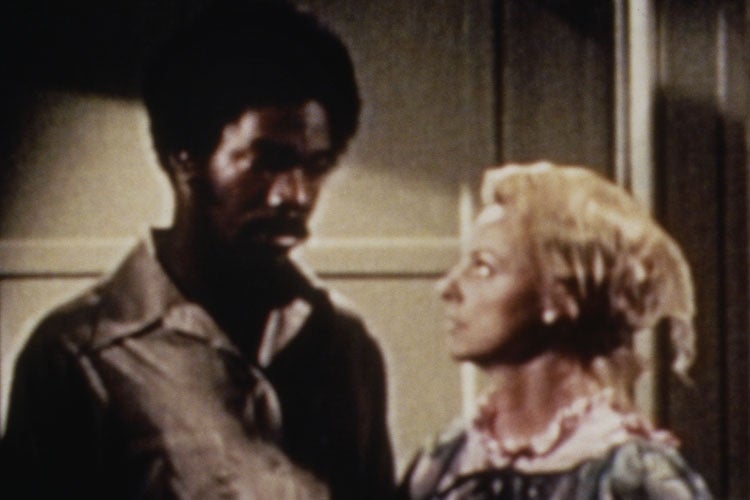You are here
Welcome Home, Brother Charles

A remarkable testament to the ambition, talent and sheer will of its creator, Welcome Home, Brother Charles was independently produced, written, directed and edited by Jamaa Fanaka as an improbable undergraduate project at UCLA. With a budget cobbled together by Fanaka from competitive grants and his parents’ savings, the film’s production ran 17 months, with shooting limited to weekends to allow unfettered access to university cinema equipment. Further cutting expenses by eliminating sets, Fanaka shot the film entirely on location in South Los Angeles and at UCLA (with fellow student and L.A. Rebellion auteur Charles Burnett serving as camera operator).
Strongly advised against attempting a feature film as a class project, Fanaka saw his completed picture through to a national theatrical distribution deal with Crown International Pictures. By 1976, Variety heralded Fanaka's auspicious debut in a profile titled, "Birth of a Black Director" and reported that his student film had grossed more than $500,000 in its first six months of exhibition. The wunderkind went on to complete two more released features while still a student: his graduate thesis project, Emma Mae (1976), and the franchise-launching cult classic, Penitentiary (1979).
Marketed as a Blaxploitation film (and later released to home video in edited form under the exploitative title, Soul Vengeance), Welcome Home, Brother Charles subversively co-opts expected genre conventions in order to examine plantation-born racial myths surrounding Black male sexuality and white fears of “miscegenation.” From the film’s foreshadowing opening image of a wood-carved African sculpture under titles to its cult-favorite ultra-shock ending, Fanaka unblinkingly drives his thematic raison d'etre home with raw conviction and verve. On its surface a revenge tale of an African American man framed and abused by the white establishment, Fanaka’s exaggerated symbolism and subtext elevates the film to unexpected parallel tracks of surrealism and social commentary.
—Mark Quigley
Film Credits
| Individual | Role(s) |
|---|---|
| Jamaa Fanaka |
Director Producer Writer Editor |
| James Babij | Cinematographer |
| Marlo Monte | Cast |
| Reatha Grey | Cast |
| Stan Kamber | Cast |
| Tiffany Peters | Cast |
| Ben Bigelow | Cast |
To report problems, broken links, or comment on the website, please contact support
Copyright © 2025 UCLA Film & Television Archive. All Rights Reserved






 Mobile Navigation
Mobile Navigation

